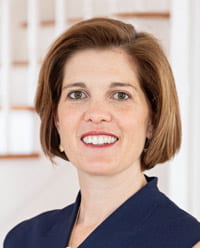
By Kaky Grant
COVID-19 and our country’s renewed focus on racial inequities have upended our conventional ways of living and ways in which we care for and interact with our communities.
I am hearing inspiring stories of how families, friends, and colleagues are engaging in compelling conversations centered on what our world should and could look like beyond 2020. It is no coincidence that the nonprofit community is at the center of many of these conversations. I believe that philanthropy is a critical building block in our figurative and literal healing.

Innovation, adaptability, and resilience best describe the trends I see in philanthropy in this moment. I have the privilege of working with philanthropists as they consider and evaluate their values and how they translate into their giving priorities. My work connects me with philanthropists, nonprofit leaders, civic leaders, social impact investors, financial planners, and academics in the field.
Over the last six months, I have observed the following shifts in approaches to giving:
Philanthropists are creatively adapting their ways of giving to help their communities. I continue to hear from major donors that they plan to give more this year motivated by the unprecedented need and partly fueled by the rebound of the S&P 500 to near record highs. They’re finding ways to make a bigger impact by leveraging assets, making their giving more public, and offering community challenges.
Specifically, foundations are finding ways to make an outsized impact in a time of great need. They’re surveying their grant partners to understand their greatest needs, determine how CARES dollars are flowing to their communities, and ascertain how the foundation’s resources can have the greatest impact
Foundations have banded together to lift funding restrictions and reporting requirements. The notion of trust-based philanthropy is truly taking root in 2020. There is also a movement for foundations to go beyond the required 5 percent distribution and give more from their corpus.
Many foundations like Mary Reynolds Babcock Foundation and the Libra Foundation have committed to giving more than the minimum distribution of 5 percent this year. The Ford Foundation is leading the way nationally by taking on debt to give more in this moment and spark more philanthropy from peers.
Philanthropists have never been more committed to helping those most in need now. They describe wanting to help vulnerable populations with emergent needs. Donors also describe wanting to help nonprofits survive the pandemic. In many cases, their organizational revenue has decreased, their programs cannot be fully realized now, and some must remain closed until the pandemic ends.
I have heard many philanthropists express concern about supporting our arts and cultural institutions now. Many have turned to the arts to help process these tumultuous times, relieve stress, and find connection in a socially distanced way. These organizations often serve as the institutional memories of our respective communities; 2020 is a year to be memorialized for future generations. Donors are committed to helping these institutions make it to the other side of the pandemic.
Events of 2020 are compelling philanthropists and their families to reexamine their philanthropic values. While some values remain constant, other values take a higher priority to drive their giving now. Donors are seeking out new partners and building relationships based on this reprioritization.
For altruistic individuals that have not done the work in identifying their top philanthropic values, making meaningful gifts in this moment can be especially trying. There are lots of organizations trying to solve pressing problems related to COVID-19 and racial inequities. It can be overwhelming to sift through the opportunities. Having clearly defined values can bring clarity in making meaningful choices.
Specifically, I am seeing philanthropists focus more of their giving using an equity lens. On a national scale, we saw MacKenzie Scott drive much of her recent giving with this in mind. She is leading the way by investing in the lived experiences of nonprofit leaders.
Many donor families are slowing down, spending more time together, and multiple generations are living under one roof for the first time in decades. This spontaneous togetherness is sparking conversations around shared values, family histories, and family legacy. They’re considering questions like: What is the lasting legacy we hope to imprint on the world? How do we as grandparents want to be remembered by our grandchildren? How will my community remember the impact of our family’s generosity? These conversations are bearing fruit and are being realized in new philanthropic adventures.
As we look to the rest of the year, the impacts of the pandemic will continue to ripple and many more will be in need. I take heart in the thoughtfulness, ingenuity, and generosity I see in our philanthropic ecosystem.
Kaky Grant is a master’s student at the Indiana University Lilly School of Philanthropy. She serves as the principal of Grant Philanthropic Advisors based in Charleston, SC. When not studying or working with donors, she enjoys being with her family, playing outside, and connecting with her nonprofit community.

Leave a Reply